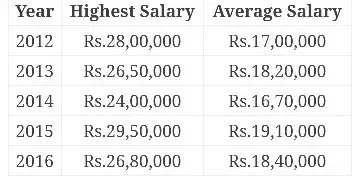Polytechnic education in India is gaining recognition for its practical approach towards skill development and employment opportunities. One crucial aspect that potential students often consider is the earning potential post-graduation. In this article, we’ll delve into the diverse landscape of polytechnic salaries across India, shedding light on various influencing factors and regional disparities.
Understanding Polytechnic Education
Polytechnic education offers specialized training in technical fields such as engineering, computer science, and others. Unlike traditional degree programs, polytechnic courses focus extensively on hands-on experience and practical skills, making graduates highly employable in various industries.
Factors Influencing Polytechnic Salaries
Several factors play a significant role in determining the salary of polytechnic graduates:
1. Specialization
The choice of specialization greatly impacts earning potential. Disciplines such as electronics, mechanical engineering, and information technology often command higher salaries due to their demand in the job market.
2. Skill Level
Employers value practical skills and certifications obtained during polytechnic education. Graduates with advanced skills or relevant certifications may negotiate higher salaries.
3. Industry Demand
The demand for specific skill sets varies across industries. Polytechnic graduates entering sectors experiencing rapid growth or facing skill shortages are likely to command higher salaries.
4. Geographic Location
Salaries can vary significantly based on the region of employment. Metropolitan cities tend to offer higher salaries compared to smaller towns or rural areas due to the cost of living and demand-supply dynamics.
Regional Disparities in Polytechnic Salaries
Polytechnic salaries in India exhibit notable regional disparities:
1. Metropolitan Cities
Metropolitan cities such as Mumbai, Delhi, and Bangalore are hubs for industries requiring technical expertise. As a result, polytechnic graduates employed in these cities often enjoy higher salaries to cope with the higher cost of living.
2. Tier-II Cities
Tier-II cities like Pune, Hyderabad, and Chennai also offer decent employment opportunities for polytechnic graduates, albeit with slightly lower salaries compared to metropolitan areas.
3. Rural Areas
In rural areas and smaller towns, the demand for technical skills may be limited, leading to comparatively lower salaries for polytechnic graduates.
Conclusion
Polytechnic education equips students with practical skills essential for the workforce. While salaries for polytechnic graduates vary based on factors like specialization, skill level, industry demand, and geographic location, the overall trend suggests promising earning potential. As the economy continues to evolve, polytechnic education remains a viable pathway for securing stable and rewarding employment in India’s diverse job market.



